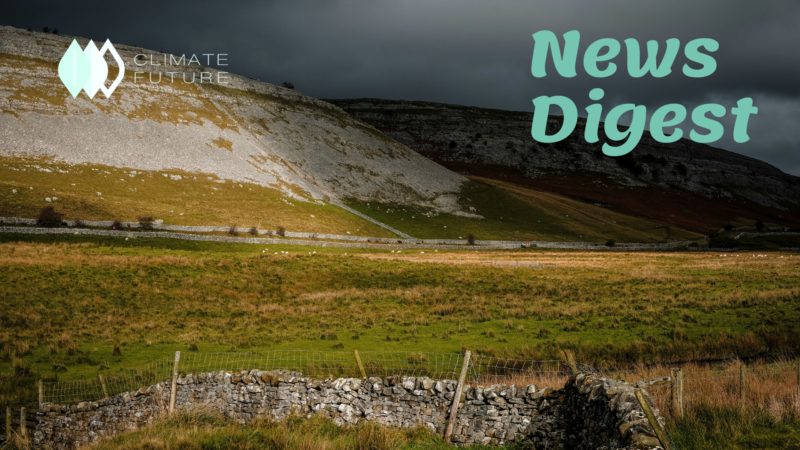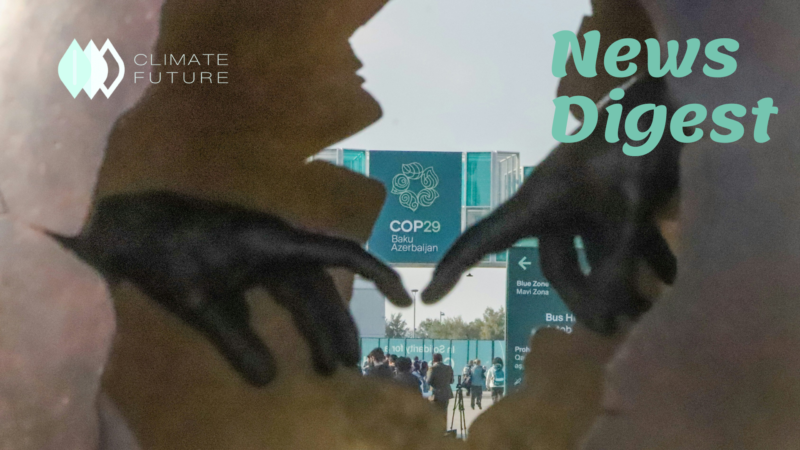Women bear the brunt of Asia’s climate failures

Gender disparity in climate change solutions is the focus of a new collaboration that was introduced at COP28. Climate impacts disproportionately affect women, particularly in areas where agriculture plays a significant role. They cannot frequently access resources and make decisions. Food insecurity rises as crop yields are decreased and agricultural techniques are disrupted by the climate catastrophe. Women, who account for a large share of the agricultural labor force in many nations, are disproportionately affected by this. Women’s participation in climate solutions is limited by gender-based disparities. Their struggles include being shut out of decision-making processes, having restricted land ownership, and difficulty obtaining finance. The collaboration seeks to enhance gender analysis in climate change funding and gather more information on the disparate effects of climate change on women. Additionally, it encourages fair job possibilities in the green economy. Initiatives like Women-Led Climate Resilient Farming (WCRF) models hold promise for empowering women in agriculture. Through these initiatives, women are positioned to take the lead in creating thriving and sustainable farming communities. Needs-based insurance for health problems due to climate change and cash assistance programs that incorporate healthcare services are other alternatives. The vulnerabilities that affect women and girls should be the primary focus of these activities.Climate solutions can be more inclusive and effective if gender inequality is addressed and women’s leadership is acknowledged.
Lifestyle and climate change: Ultra-fast fashion undermines global sustainability efforts

Consumers at a No Fast Fashion rummage sale in France. Screenshot courtesy: Instagram/no_fastfashion
With the rise of ultra-fast fashion, the fashion industry is heading in a less sustainable direction. This new style includes limited-edition clothing, even shorter manufacturing cycles, and a disregard for ethical labor standards. Large fashion firms release thousands of new items annually, whereas Shein, a well-known ultra-fast fashion brand, publishes 1.3 million pieces in the same time frame. Data and social media marketing are used to do this to generate client needs. Since clothing is made at low quality with little respect for worker safety, there are considerable environmental and social costs. Australia is creating a national product stewardship program to address this issue and move the fashion industry towards a circular economy. The program attempts to promote recycling and reduce trash. There are worries that other firms may be burdened if ultra-fast fashion brands choose not to take part in the program. To solve the problem, a drastic crackdown and systemic change are required. The effects of ultra-fast fashion require further study, and worldwide cooperation is required to promote sustainable practices.
Climate Scientists: We Need to Halve Our Livestock Emissions by Replacing Meat & Dairy with Plant-Based Foods

The critical need to cut livestock emissions to prevent climate change is highlighted in a recent study conducted by agrifood professionals and climate scientists. Despite providing a relatively tiny fraction of our calories and protein, livestock farming accounts for a staggering 60% of emissions from the food system. The researchers suggest a large reduction in meat consumption, particularly in wealthier countries, to stay on track with climate targets. High-income nations must move significantly more quickly to reduce livestock emissions, which the analysis predicts will peak globally by 2025. It would be necessary to make a significant transition to plant-based diets for this, with experts suggesting that “much more plant-based” options be used in these locations. The study highlights that the welfare of the animals should not be jeopardized to achieve these reductions. Additionally, it emphasizes plant-based substitutes as the “best available food” option, especially where they have lower emissions and similar health advantages. The study highlights a significant void in the country’s climate policies, with little attention paid to mitigating emissions from cattle. The paper suggests that governments take many steps to close this gap, such as establishing precise deadlines for peak animal production, updating climate policies, and coordinating agricultural subsidies with environmental objectives. A successful shift to a more sustainable food system is also thought to require investment in the study and development of plant-based substitutes.
Scientists divided over whether record heat is acceleration of climate crisis

Scientists are concerned that 2024 may see record-breaking temperatures. The waters are still abnormally warm even though El Niño, a natural warming event, has subsided. Since the oceans normally absorb the majority of Earth’s heat, this is worrying. According to some scientists, these temperatures are within the range of anticipated warming trends brought on by human activities. Others are concerned about how quickly things are changing, particularly in the oceans. The greatest recorded ocean temperatures occurred in January and February. Global temperatures across land and sea were also well above average, so the heat wasn’t just in the seas. Experts claim that if greenhouse gas emissions aren’t regulated, these abnormally high temperatures are a sign of things to come. All indicators indicate to further warming the use of fossil fuels is reduced, even though a cooler La Niña later in the year would provide some brief relief. Marine life is already feeling the effects; the Great Barrier Reef is going through its fifth major bleaching episode in the last eight years. Increased activity during hurricane seasons could potentially result from warmer oceans.
References
https://www.greenqueen.com.hk/harvard-climate-scientists-livestock-emissions-plant-based-survey/



